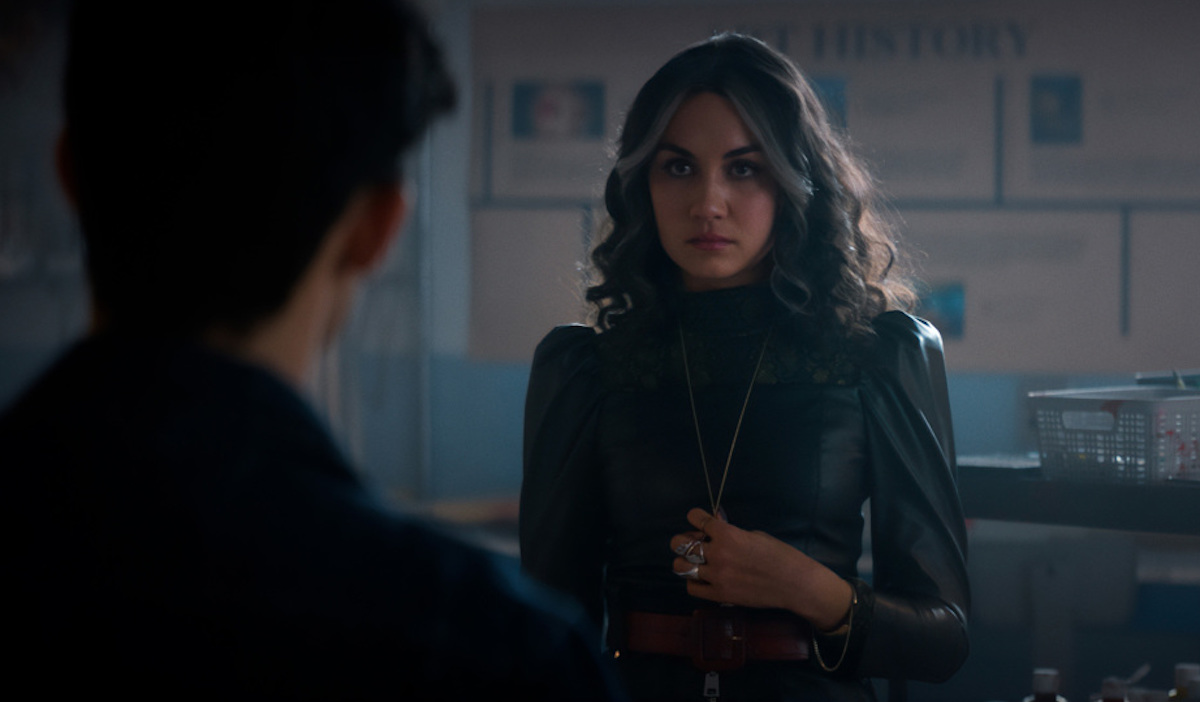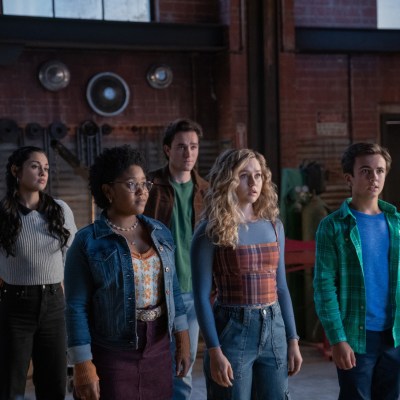The following article contains Stargirl spoilers.
Stargirl Season 2 Episode 5
There’s a lot going on in Stargirl’s second season, from the Whitmore-Dugan clan’s attempt to adjust to life as a superhero family, the newly reconstituted Justice Society of America’s struggle to deal with the fallout from last season’s finale battle with Icicle, and, of course, the constant drag of summer school.
Real-life responsibilities are encroaching on our young heroes’ crime-fighting time. Courtney is trying to balance her superhero duties with her everyday life as a student and a sister, Beth’s worried about keeping her parents’ marriage together, Rick is having a somewhat bizarre crisis of conscience over the fate of a being he was determined to murder just a few short months ago. Let’s just say that none of this is precisely where we expected this story to go.
But throughout its first season, Stargirl delighted in subverting our expectations about the sort of stories that superhero shows were supposed to tell, and its second is no different, exploring much more complicated ideas than are often seen in this genre. (See also: Yolanda’s lingering guilt over killing Brainwave, Beth’s desperation to hang on to some kind of stability in her life, and Mike’s acute loneliness within his own family.) But where the show truly excels is in its treatment of its various bad guys.
This isn’t a new development, by any stretch – Season 1 was exceptionally deft at exploring the legacies our young characters had been left by their parents and the long-tail traumas that often came with them. But even though the majority of parents in Blue Valley sort of turned out to be supervillains of varying stripes, none of them were one-note caricatures, and all of them at least felt like they didn’t exist that far away from the prospect of redemption. (Even Brainwave. Sometimes.)
And that’s still the case in season 2. Possibly even more so now than ever before. Yes, it’s true that new baddie Eclipso appears truly monstrous, a point that’s driven home by this week’s violent possession of the high school art teacher and its horrifying ability to manifest its targets’ most impactful and destructive fears. This is a villain that’s both deadly and frightening, and rightfully so.
But the majority of the villainous figures of Blue Valley run the gamut from hyper-obsessed parents to lonely teens, making Stargirl’s entire concept of evil much more layered and nuanced than many other superhero shows. Though the series includes many characters that are rightly categorized as villains, even some of its worst are presented in such a way that implies they aren’t completely irredeemable despite their nefarious deeds. (Or, at least, that the reasons for many of their horrible acts are understandable ones.)
Last week, we saw convicted felons Tigress and Sportsmaster break out of jail – not to commit more crimes, but to cheer on their daughter Artemis during a tryout for a college football scout. Former Injustice Society member The Shade is skulking around Blue Valley in the service of goals we still don’t entirely understand, but it often seems as though he’s trying to help Courtney and her friends as much as hinder or harm them. (He even left a literal calling card so that they could contact him if needed!) Even Solomon Grundy, the creature Rick blames for the death of his parents – and whom he himself came pretty close to killing last season – has now become something of a sad pet, hiding in a nearby forest while his former mortal enemy smuggles him cheeseburgers from a local diner.
And then, of course, there’s Cindy Burman. Already one of Stargirl’s best characters as well as one of the DC TV universe’s most intriguing bad guys, her rise to supervillain status is one that’s as much about circumstances as it is about choice. Stargirl never lets us forget that she herself is a victim of her father’s abuse, from the horrific experimentation that turned her into “Shiv” in the first place to the brainwashed string of stepmothers that ended with her being forced to physically consume one of them. And that’s not even mentioning the fact that, while we’re not entirely sure how her mother died, we’re pretty sure Cindy was involved somehow. (Cameron’s reference in “Summer School: Chapter Five” to Cindy’s callous behavior in the wake of her mother’s death certainly hints that we haven’t fully seen everything about how she became, per Beth, the “scariest kid in fourth grade.”)
Read more
Yes, Cindy is currently trying to recruit members for her own teen ISA, but her reasons for chasing supervillain status are deeply understandable. This is a girl who is desperately lonely and who has lived most of her life with almost no control over the most basic of personal choices, ranging from the autonomy of her own body to the identity of her high school boyfriend. Of course, she’s going to leap at the first opportunity to claim some degree of power for herself, even if it comes from a dark jewel that seems as likely to corrupt her mind as it is to help her achieve her goals. It’s really hard not to feel some degree of sympathy for her is what I’m saying.
And the same goes for both Isaiah Bowin and Artemis Crock, both kids who are similarly outcasts and angry, and are also both grappling with the loss of their parents and the dreams that went along with them. (Though at least Artemis has some hope of seeing her folks again.) The new Injustice Society is as full of misfits as its JSA counterpart, the sort of kids whose lives could have easily seen them trade places with Stargirl’s designated “heroes,” if only their personal circumstances had been the slightest bit different. (Okay, maybe not Beth. And the jury’s still out on Cameron.)
It’s why the series’ slow build to an inevitable face-off between the two groups is such a tantalizing prospect. And it’s why Stargirl’s second season feels as though it could go in so many different directions.


